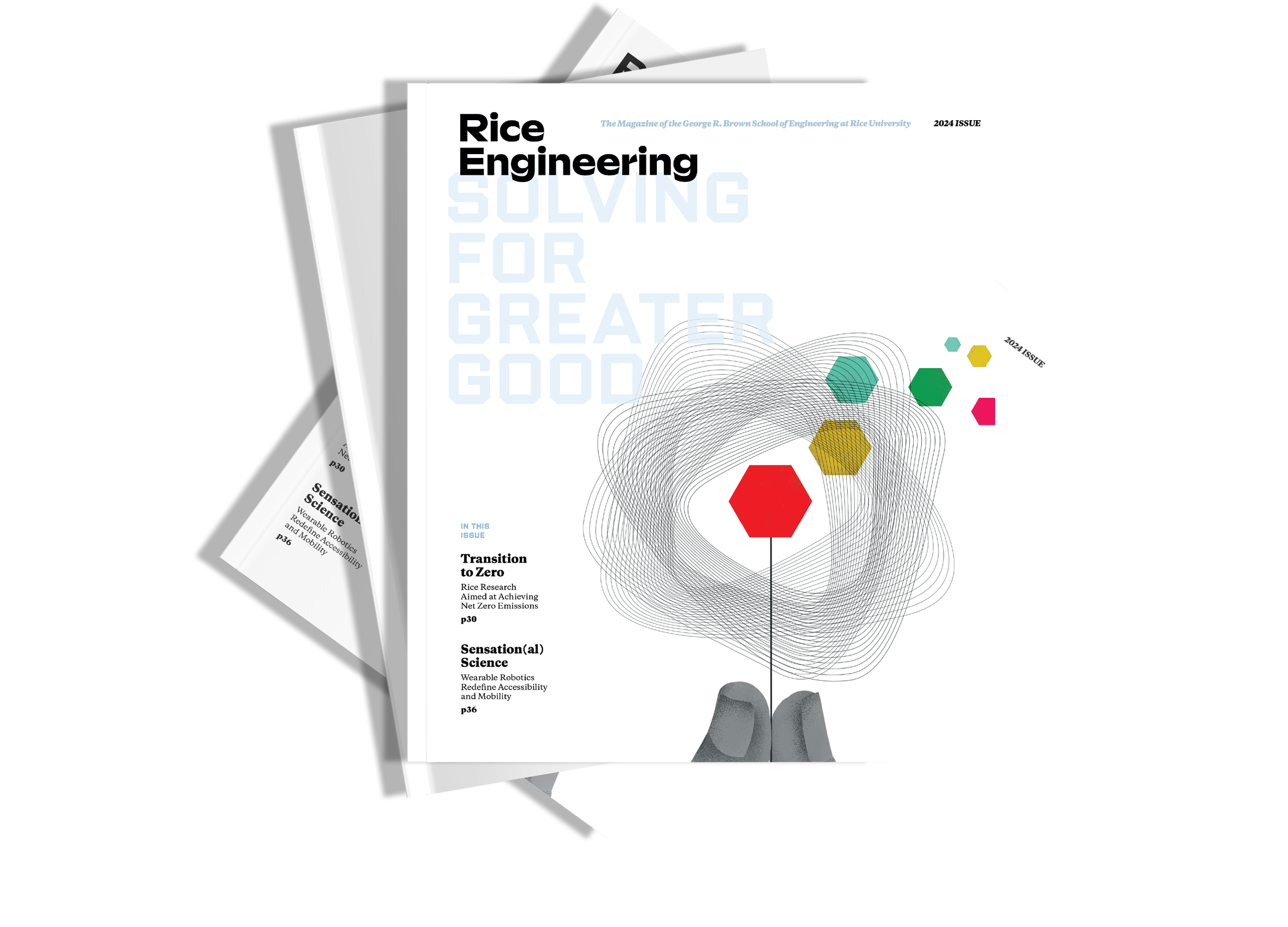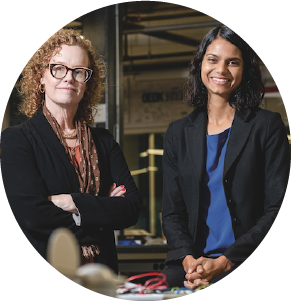
The spring 2024 issue of Rice Engineering Magazine is here!
At Rice Engineering, we are driven by a passion for innovation and a commitment to responsible engineering practices. It’s with great excitement that we unveil the new design of Rice Engineering magazine, which underscores our dedication to excellence in research, education, and service. The 2023-24 issue is full of news about how Rice Engineering is solving for greater good.
Equity and Innovation: Engineering for All
Responsible engineering practices are embedded in Rice Engineering’s approach to addressing global challenges. The interdisciplinary research of faculty and students leads to solutions that promote equity for communities worldwide. From improving medical care delivery to ensuring access to clean water and technology, here are some of the ideas and research from Rice engineers that are reshaping the global landscape.
 |
Broadening Access to Cervical ScreeningRice bioengineers have demonstrated a low-cost, point-of-care DNA test for HPV infections that could make cervical cancer screening more accessible in low- and middle-income countries where the disease kills more than 300,000 women each year. |
 |
Placing People at the Heart of Medical DesignA five-year grant from the National Institutes of Health (NIH) will support the development of an innovative undergraduate bioengineering curriculum component intended to cultivate inclusive design principles for Rice students contemplating a career as medical practitioners or medical technology innovators. |
 |
Preserving Water Supply SystemsHouston’s water and wastewater system could be more resilient with the development of hybrid urban water supply systems that combine conventional, centralized water sources with reclaimed wastewater, according to a study by Rice engineers published in Nature Water. |
 |
Equalizing Wireless AccessAccess to high-speed internet is crucial for global communities, yet over half the population lacks it due to cost and limited technology reach. Rice University researchers, led by Rahman Doost-Mohammady, are addressing this with a $1.9 million grant, developing a testing framework for software-based 5G networks to improve stability, efficiency and availability. |
